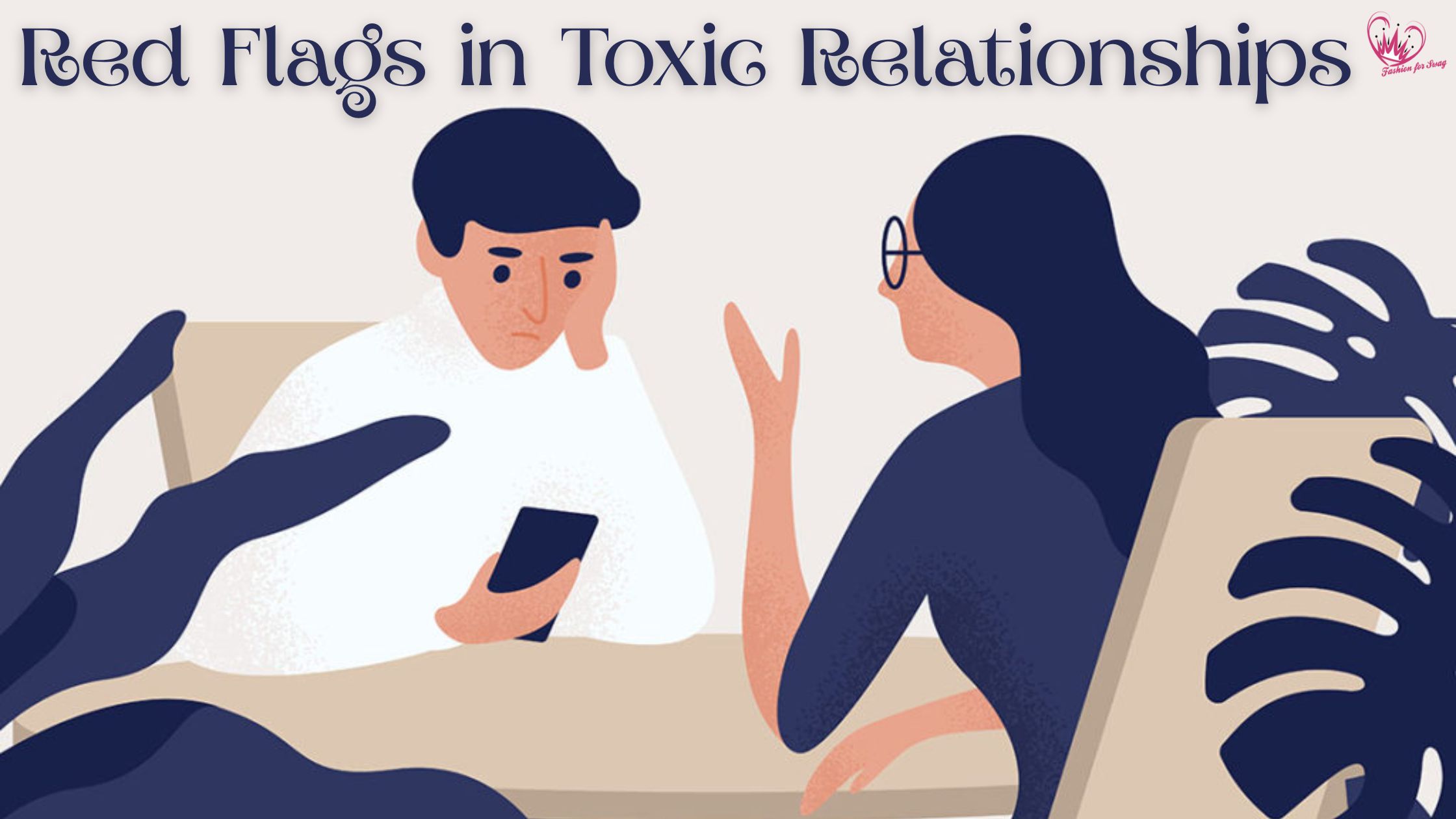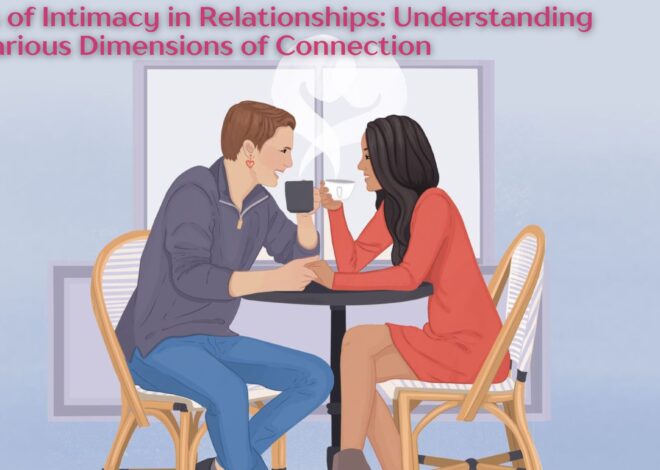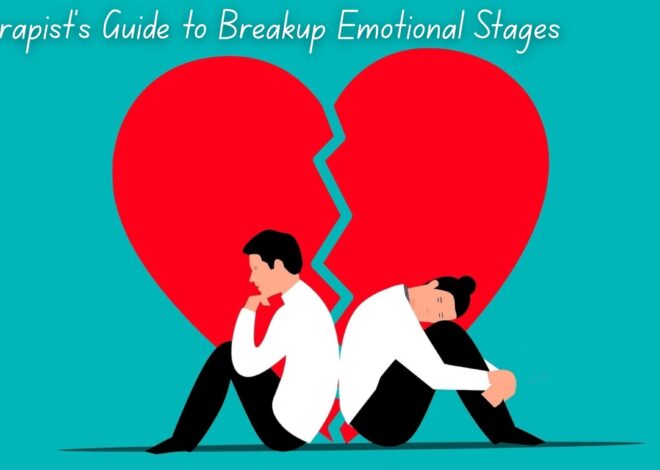
Red Flags in Toxic Relationships: Your Guide to Identification and Healing
Have you ever discovered yourself on a date that, on the floor, appeared excellent to others, but left you feeling always tired, irritating, or always taking walks on eggshells? Perhaps you have dismissed nagging doubts or moments of unease as “only a tough patch” or “my overthinking.” This diffused, insidious erosion of your peace and self-esteem is frequently the hallmark of a poisonous relationship.
At its core, a toxic relationship is a dynamic that consistently makes you feel unsupported, misunderstood, demeaned, or attacked. It’s a sample of interaction that, in preference to fostering growth and happiness, slowly however truly chips away at your self-belief, vanity, and usual well-being. The venture lies within the truth that those destructive styles, often referred to as “red flags,” are not continually glaringly obvious from the outset. They may be pretty diffused, masked by using moments of love, or rationalized away as quirks.
Recognizing those purple flags early is not just critical; it is genuinely important for protecting your intellectual, emotional, and even bodily fitness. Ignoring them can cause extended suffering and deep psychological scars. This blog aims to be your complete guide, designed that help you become aware of the numerous pink flags found in poisonous relationships, apprehend their profound impact, and, most importantly, empower you with actionable steps closer to healing and fostering healthier connections to your life.
The Nature of Red Flags: More Than Just “Bad Habits”
When we talk approximately red flags in relationships, it’s essential to first understand what they truly constitute. They are some distance greater than just “awful habits” or occasional disagreements. In every dating, there will be moments of struggle, misunderstandings, and differing reviews. These are regular, even healthful, factors of two individuals navigating existence together. True red flags, however, distinguish themselves as steady, harmful patterns of conduct that suggest a fundamental imbalance, disrespect, or even malice inside the dynamic. They aren’t remoted incidents but routine issues that erode the foundation of consideration and mutual well-being.
It’s also essential to well know that toxicity exists on a spectrum. Not each unhealthy courting straight away provides with overt abuse. Some relationships would possibly exhibit mild, dangerous styles – perhaps passive-aggressiveness or a loss of emotional reciprocity – that, while negative, is not as intense as manipulative control or outright verbal abuse. However, even the reputedly “milder” paperwork, if unaddressed, can enhance or make contributions to a deeply dissatisfying and draining experience. At the ways give up of the spectrum lie relationships characterized through extreme emotional, verbal, or even physical abuse, where the crimson flags are simple shouts of chance.
Despite their gravity, crimson flags are frequently distinctly tough to see, in particular inside the initial ranges of a dating. This problem stems from several insidious psychological tactics. Often, a toxic associate may also start with excessive love bombing, overwhelming you with affection, compliments, and grand gestures that create an effective sense of being loved and desired. This length of idealization paints a photo of a perfect partner, making it tough to reconcile with later, extra terrible behaviors. As the connection progresses, procedures like gaslighting start to chip away at your face, making you doubt your perceptions, recollections, and sanity. This makes it challenging to trust your gut instincts while you spot inconsistencies. Furthermore, emotional manipulation through guilt, threats, or playing the victim can create a powerful emotional entanglement, making it tremendously tough to objectively examine the connection or to depart, even if the crimson flags begin waving.
Common Red Flags: Identifying the Warning Signs
Identifying crimson flags calls for an eager eye and a sincere evaluation of the relationship dynamics. These are constant styles of conduct that signal deep-seated trouble, transferring beyond occasional disagreements into dangerous territory.
Control and Possessiveness
A commonplace and insidious purple flag is a companion’s want for excessive control. This often manifests as tracking your behavior, together with constantly checking your phone, disturbing to know your whereabouts at all times, or scrutinizing your social media pastime. They might start dictating your selections, telling you who you may or can’t be buddies with, what you must wear, or even influencing your career direction. Excessive jealousy and baseless accusations are frequent symptoms, where even innocent interactions are considered with suspicion. In some instances, this extends to financial control, wherein they restrict your get admission to cash, demand to peer all of your spending or save you from running.
Manipulation and Deception
Manipulation is a cornerstone of toxic relationships, making you query your sanity. Gaslighting is a particular negative form, in which your partner makes you doubt your truth, memory, or sanity with terms like, “That never took place,” “You’re too sensitive,” or “You’re crazy.” They might engage in guilt-tripping, making you accountable for their emotions or mistakes, shifting blame far away from themselves. Emotional blackmail and threats, consisting of threatening to leave you, damage themselves, or damage you in case you don’t comply, are intense types of manipulation designed to govern your movements. Consistent lying and dishonesty, even approximately apparently small matters, systematically erode the considered essential for any healthful dating.
Lack of Respect and Empathy
A foundational element of a healthful courting is mutual respect, which is regularly absent in poisonous dynamics. You may experience steady criticism and belittling, in which your associate places you down, mocks your look, intelligence, or achievements, regularly disguising it as “jokes” or “just being honest.” There’s a continual dismissal of your feelings and wishes, making you experience trivialized, unheard, or that your emotions are inconvenient. Boundary violations are common, as they consistently dismiss your non-public area, time, selections, or comfort ranges without remorse. Crucially, there is a pervasive loss of accountability, wherein they blame every person else (especially you) for his or her errors and refuse to take duty for his or her personal moves or contributions to problems.
Communication Breakdown
Healthy relationships thrive on open communication, but poisonous ones are plagued by its absence or perversion. Stonewalling is a commonplace tactic, in which a partner shuts down, refuses to communicate, or offers you the silent treatment for extended durations, the usage of silence as a weapon. They showcase severe defensiveness, unable to listen to any shape of criticism or comments without becoming competitive, deflecting blame, or playing the victim. There’s often a loss of openness approximately essential subjects, warding off crucial conversations about the future, and finances, or addressing issues constructively, leaving troubles unresolved.
Isolation
A companion in a toxic relationship may also actively work to isolate you from your help machine. This involves actively attempting to distract you from friends, your own family, or different guide networks, subtly or brazenly discouraging you from spending time with them. They would possibly attempt to monopolize a while and interest, awaiting you to prioritize them particularly else. You’ll frequently observe them expressing discomfort or anger whilst you spend time with others, leading you to reduce your social interactions to avoid their bad reactions.
Instability and Emotional Volatility
Toxic relationships are frequently characterized by an unsettling unpredictability. You might witness unpredictable temper swings and extreme emotional outbursts that seem to pop out of nowhere, leaving you bewildered. There’s often a feeling of steady drama or chaos within the dating, transferring from one disaster to another. This instability creates surroundings where you feel like you’re “walking on eggshells,” continuously tracking your phrases and movements to keep away from triggering their anger or negative reactions, main to perpetual anxiety.
Unequal Effort and Reciprocity
A wholesome courting is a partnership of mutual giving and taking. In a poisonous dynamic, you may regularly observe one-sided attempts, where you’re constantly doing maximum of the giving, compromising, and emotional exertions, while they’re always taking. This imbalance leaves you feeling devalued and depleted because your needs, goals, and contributions are not being met or preferred. There’s a clear loss of mutual aid for each other’s goals, goals, and happiness; their recognition remains in most cases on their own.
Abuse (Emotional, Verbal, Physical, Sexual, Financial)
Warning: It is critical to recognize that any shape of abuse is an intense purple flag and is continually grounds for instant movement and prioritizing your protection. These behaviors are not just “unhealthy”; they may be risky and unacceptable.
- Emotional Abuse: Involves systematic mental manipulation designed to undermine your self-esteem, along with steady insults, call-calling, intimidation, or chronic humiliation.
- Verbal Abuse: Characterized via yelling, screaming, demeaning language, threats, or competitive verbal exchange that frightens or degrades you.
- Physical Abuse: Any undesirable bodily contact meant to damage, manage, or intimidate, which includes hitting, pushing, slapping, grabbing, or restraining.
- Sexual Abuse: Pressuring, coercing, or forcing sexual acts without enthusiastic consent, or any undesirable sexual touch.
- Financial Abuse: Restricting your get entry to cash, controlling your spending, preventing you from operating, or collecting debt on your name without your knowledge.
The Psychological and Emotional Impact
The insidious nature of poisonous relationships approaches their harm extends some distance past the immediate interactions, deeply scarring someone’s mental and emotional panorama. Living with regular negativity and manipulation takes a profound toll, frequently main to a slow however devastating decline in well-being.
One of the maximum profound influences is the erosion of shallowness and self-confidence. Constant complaints, belittling comments, and being advised you’re “too touchy” or “crazy” systematically chip away at your self-belief. Over time, you begin to internalize those terrible messages, doubting your competencies and believing you’re unworthy.
This environment fosters multiplied anxiety and stress. The perpetual kingdom of hypervigilance, where you’re continuously “taking walks on eggshells” to avoid scaring your associate or anticipating their subsequent unstable outburst, keeps your fearful machine on excessive alert. This continual stress can result in a pervasive feeling of unease, dread, and a constant feeling of being crushed.
As the toxicity persists, many individuals revel in despair and hopelessness. The isolation, consistent emotional drain, and the feeling that nothing you do is ever properly enough can lead to profound disappointment, apathy, and a notion that your state of affairs will never improve. This may be compounded with the aid of emotions of being trapped or powerless.
Confusion and self-doubt are in particular acute, especially when techniques like gaslighting are employed. When your reality is constantly puzzled and twisted, you begin to distrust your reminiscence, perceptions, or even your sanity, leading to deep internal confusion and a profound experience of psychological disorientation.
Over time, you might experience a profound lack of identification. As you adapt your behaviors, thoughts, or even emotions to soothe your partner or keep away from conflict, you begin to lose touch with who you honestly are, your non-public values, pastimes, and genuine self outside of the connection dynamic.
The persistent strain and emotional distress additionally occur as bodily signs and symptoms. Prolonged exposure to a toxic environment can lead to pressure-related bodily ailments which include persistent sleep troubles (insomnia or oversleeping), chronic fatigue, common complications or migraines, digestive problems, and even a weakened immune device.
Finally, a particularly complicated and destructive final result is trauma bonding. This takes place whilst cycles of excessive abuse (emotional, verbal, and so on.) are intermittently accompanied by periods of effective reinforcement or reconciliation (e.g., apologies, grand gestures). This inconsistent reinforcement creates a powerful, dangerous emotional attachment, making it exceedingly difficult for the sufferer to go away, as they emerge as bonded to the very individual causing them damage.
What to Do When You Spot Red Flags
Recognizing red flags is a brave and crucial step. But awareness alone isn’t enough; taking action to protect your well-being is paramount. Here’s what you can do when you start noticing these warning signs in your relationship:
Acknowledge and Validate Your Feelings
This is often the hardest part, especially after experiencing gaslighting or constant belittling. However, it’s the most foundational step toward reclaiming your reality.
- Trust your gut instinct: That persistent feeling of unease, dread, or being “off” is your intuition signaling a problem. Don’t dismiss it.
- It’s not your fault: Toxic behavior stems from the perpetrator’s issues, not your inherent worth. You are not responsible for their actions or emotions.
- It’s okay to feel confused or sad: These are normal emotional responses to a dysfunctional dynamic. Allow yourself to experience these feelings without judgment.
Document the Behavior (If Safe)
If you feel safe doing so, creating a record of incidents can be incredibly empowering and useful.
- Keep a private journal or notes: Jot down specific incidents, including dates, what happened, what was said, and how it made you feel. This can be a physical journal hidden away or a digital note that is password-protected.
- This helps validate your reality: When a toxic partner distorts events, having a written record can serve as a concrete reminder of what truly occurred, combating gaslighting. It can also be useful if you later seek professional or, in severe cases, legal help.
Set Boundaries
Establishing clear boundaries is essential for protecting your emotional and psychological space.
- Communicate your boundaries: If it is safe to do so, articulate what you will and will not tolerate. For example, “I will not tolerate shouting,” or “I need personal space when I’m working.”
- Understand that a toxic partner may disregard or react negatively to boundaries: Be prepared for them to test, ignore, or even become angry when you enforce boundaries. Their reaction often confirms the toxic pattern.
- Boundaries protect you, regardless of their reaction: The purpose of a boundary isn’t to change their behavior (though it might), but to define what you will and won’t accept, and how you will respond to violations.
Seek Support from Trusted Individuals
You don’t have to navigate this alone. Reaching out to your support system can provide much-needed perspective and comfort.
- Talk to friends, family, or mentors: Share your experiences with people who genuinely care about your well-being and whose judgment you trust. They can offer an outside perspective on the relationship that you might be too emotionally close to see clearly.
- They can offer emotional support: Having someone listen without judgment and validate your feelings can be incredibly healing and empowering.
Professional Help is Key
Dealing with toxic relationship dynamics often involves deep-seated emotional and psychological patterns that are best addressed with expert guidance.
- Therapy/Counseling:
- Individual therapy is highly recommended for anyone in or leaving a toxic relationship. A therapist can help you process trauma, rebuild self-esteem, develop coping mechanisms, and understand unhealthy patterns.
- Couples therapy is generally only recommended if both partners are genuinely committed to significant change, there is no history of physical abuse, and the therapist is specialized in addressing dysfunctional dynamics. In abusive relationships, couples therapy can be dangerous as it may provide the abuser with more tools for manipulation.
- Support Groups: Joining a support group can provide invaluable peer support and a sense of community. Look for groups specifically for individuals dealing with toxic relationships, codependency, or those affected by a partner’s addiction (e.g., Al-Anon, for those affected by a loved one’s drinking, can offer insights into codependent behaviors often present in toxic dynamics).
- Crisis Hotlines: In situations involving any form of abuse, especially physical or sexual, seeking immediate help from a crisis hotline is crucial for safety planning and support.
- National Domestic Violence Hotline (India): 181 (Women Helpline) or 1098 (Childline India – for children in distress, including witnessing domestic violence). These lines offer immediate support and guidance.
- Sneha India (for suicide prevention & emotional support): 044 2464 0050.
- AASRA (for suicide prevention & emotional support): +91 22 2754 6669.
The Difficult Decision: Staying, Changing, or Leaving
Spotting red flags and seeking support brings you to a critical juncture: the difficult, often agonizing decision of whether to stay and try for change or to leave the relationship. There’s no single “right” answer for everyone, as circumstances and safety vary, but understanding the possibilities can help you make an informed choice.
Is Change Possible?
The question of whether a toxic relationship can transform into a healthy one is complex. For change to occur, it requires genuine recognition, profound accountability, and consistent, sustained effort from the toxic partner, often with dedicated professional help. They must truly acknowledge their harmful behaviors, take full responsibility for them without blaming you, and commit to altering their patterns over time. It’s crucial to emphasize that you cannot change them; they must genuinely want to change themselves. Your efforts to fix, rescue, or alter their behavior will likely be futile and further drain you. If they consistently deny, deflect, or blame, lasting positive change is highly improbable.
Prioritizing Your Safety
Above all else, your physical, emotional, and psychological safety must be your top priority. If the relationship involves any form of physical abuse, sexual abuse, or severe emotional/verbal abuse that threatens your well-being, leaving is almost always the safest and healthiest option. Do not rationalize or minimize these dangers. If leaving might pose a risk to your safety, it is imperative to create a safety plan. This involves identifying safe places to go, securing important documents, informing trusted friends or family, and having a packed bag ready. Helplines (like the 181 Women Helpline in India) can provide invaluable assistance in developing such a plan.
The Process of Leaving
Deciding to leave is incredibly difficult, and the act of leaving itself can be a protracted and emotionally complex process. It’s common for individuals to experience cycles of trying to leave and returning, often due to emotional manipulation, guilt, or genuine feelings of love and hope for change. The emotional complexity is profound: you may grapple with intense guilt, profound sadness, fear of the unknown, and even a lingering love for the person, despite their harmful actions. From a practical standpoint, leaving often requires careful planning, including achieving a degree of financial independence, finding alternative housing, and building a robust support network to lean on during the transition.
Healing After a Toxic Relationship
The journey doesn’t end when the relationship does. Healing after a toxic relationship is a process, not a singular event. The damage to self-esteem, trust, and emotional well-being takes time and conscious effort to repair. It involves rebuilding self-esteem and trust – both in yourself and the possibility of healthy connections with others. You’ll need to learn to identify and embody healthy relationship patterns, understanding what mutual respect, empathy, and boundaries truly look like. Throughout this challenging but ultimately liberating journey, the importance of self-compassion cannot be overstated. Be kind to yourself, acknowledge your resilience, and celebrate every step forward.
Conclusion: Empowering Your Well-being
The journey of recognizing red flags in a relationship is, at its heart, a profound act of self-love and courage. It demands honesty, vulnerability, and a fierce commitment to your well-being, even when the truth is difficult to face. As we’ve explored, these subtle and overt warning signs are not just minor irritations; they are indicators of patterns that can profoundly erode your happiness and sense of self.
But here is the empowering truth: you have the inherent power to prioritize your well-being, and you deserve a relationship characterized by respect, support, and genuine affection. No one deserves to feel consistently diminished, controlled, or invalidated.
Therefore, we urge you: to act on these insights. Trust your intuition when something feels off, document what you observe, set boundaries to protect your space, and, most importantly, seek support from trusted individuals and professionals. Embark on a path towards healthier connections and a more fulfilling, peaceful life. Remember this foundational truth: Your emotional and psychological well-being is non-negotiable.



